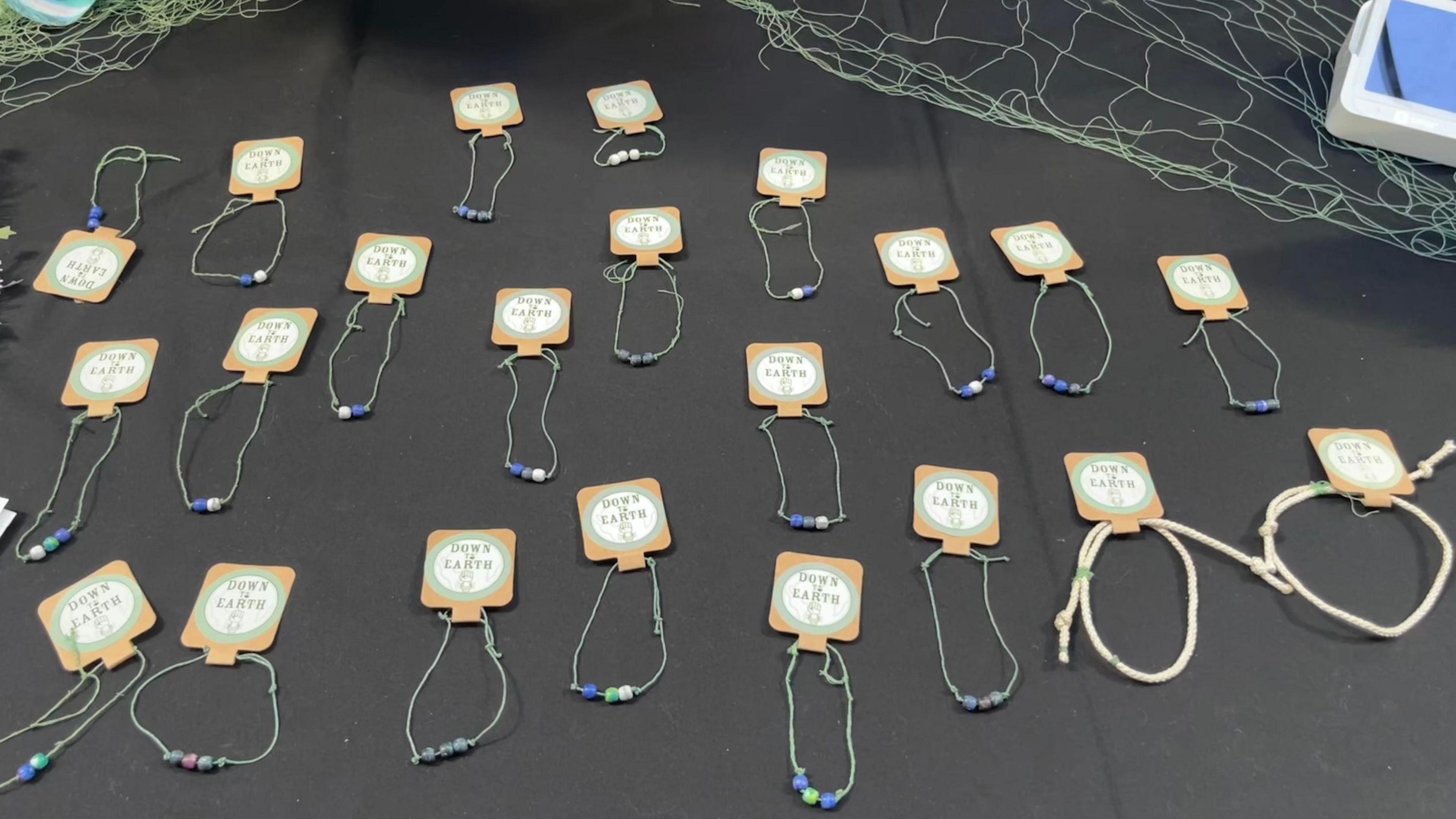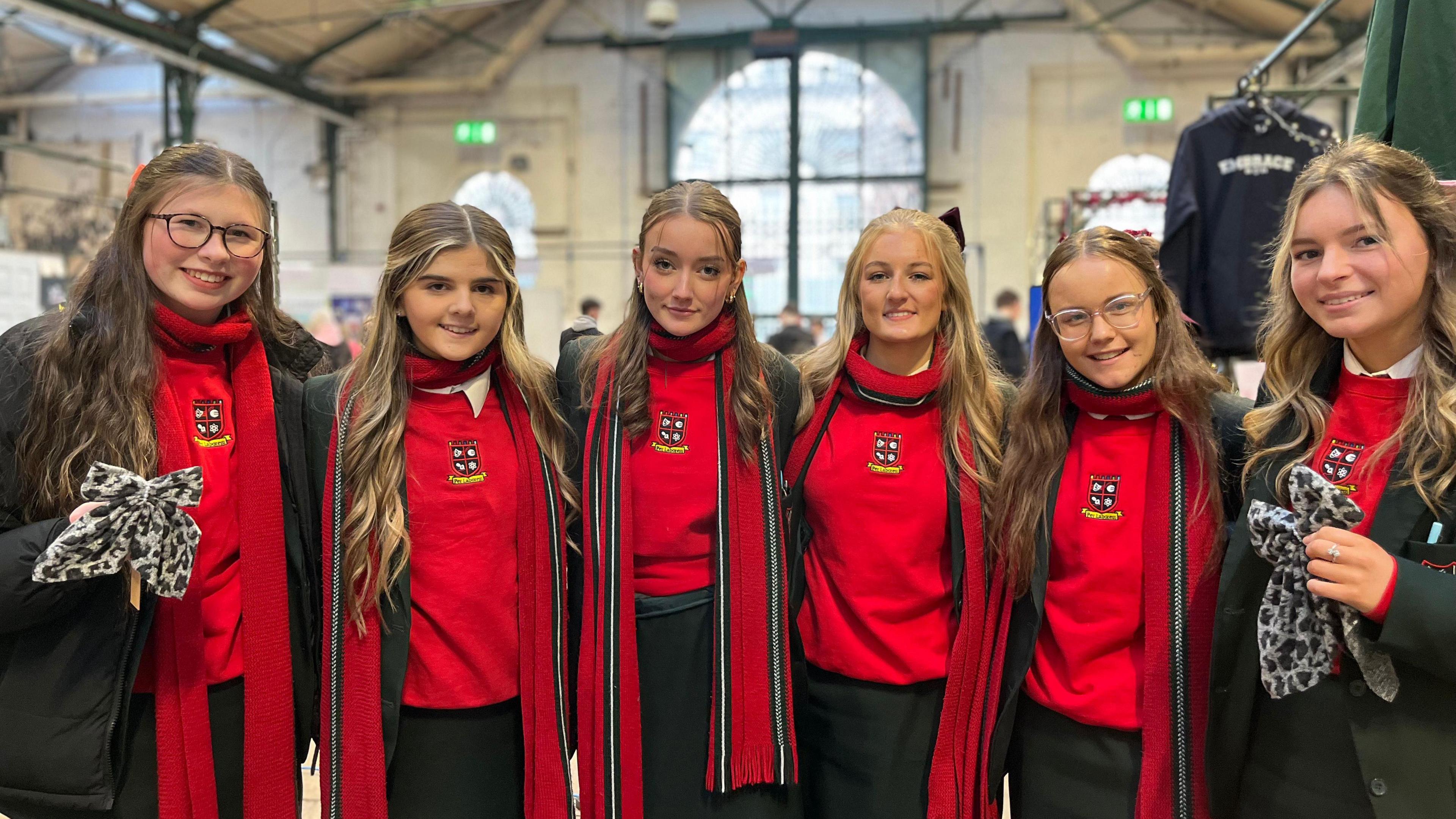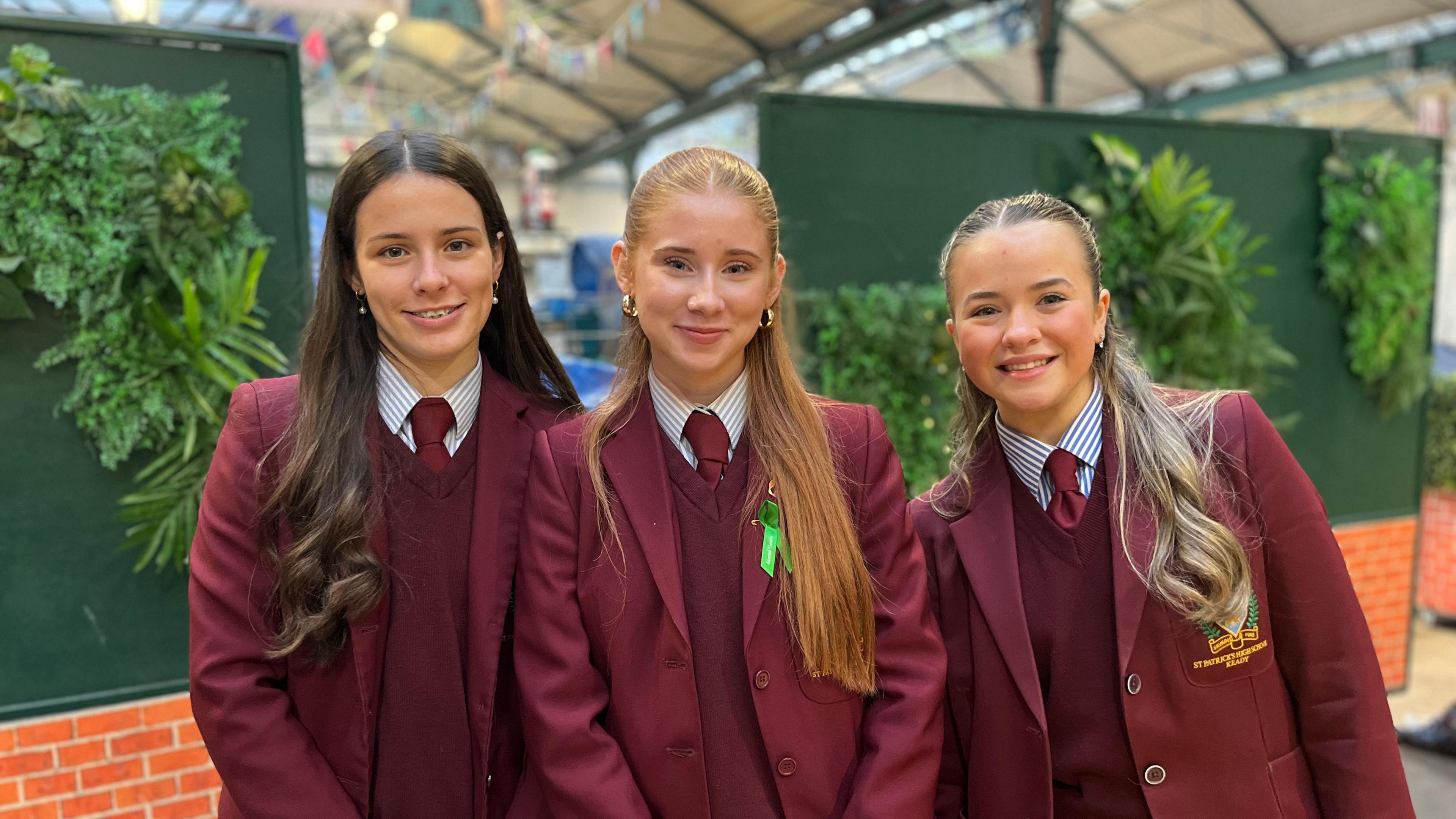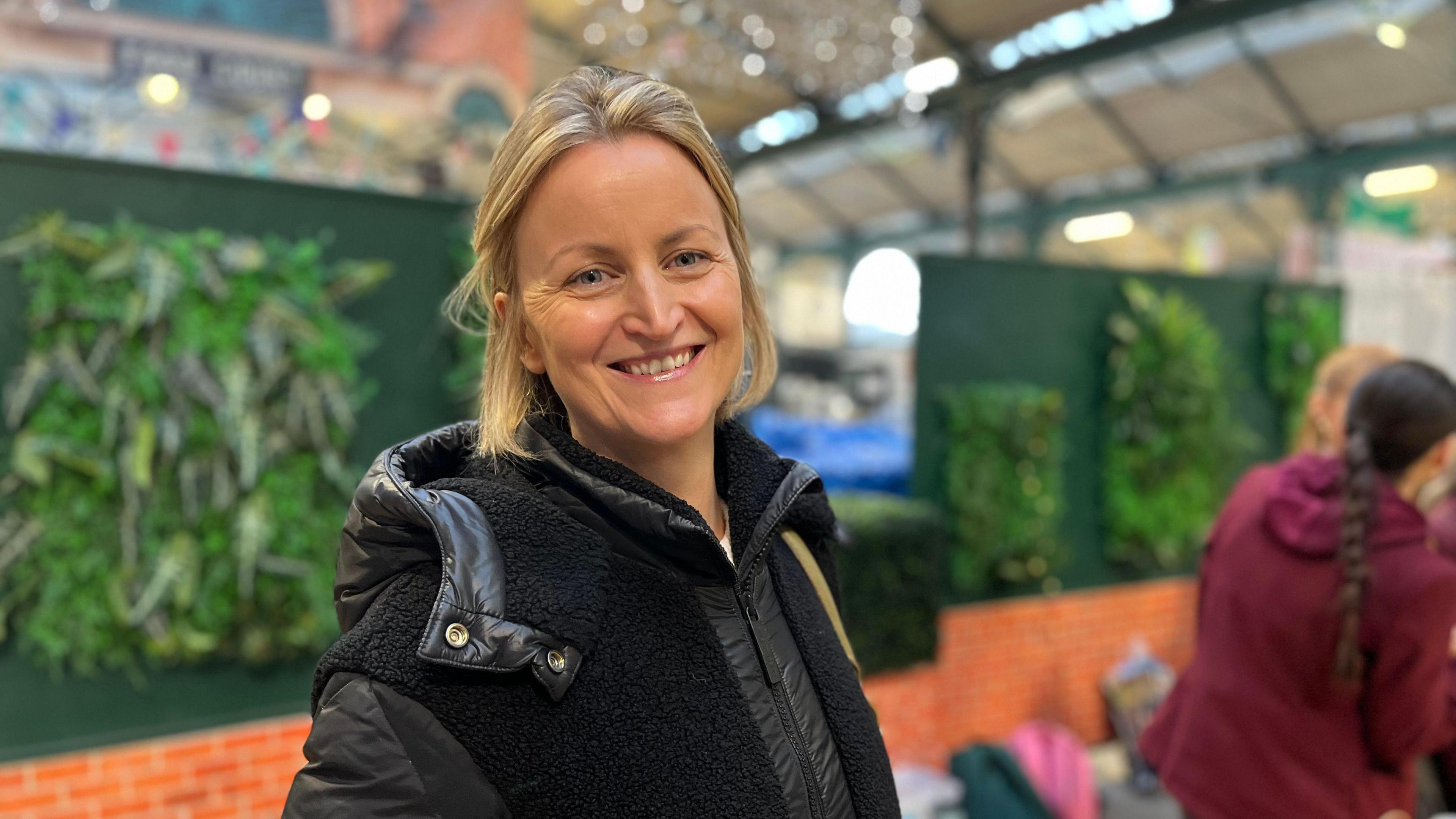Young entrepreneurs turn business ideas into reality

The team behind Down to Earth from Wallace High School
- Published
Hundreds of young entrepreneurs from across Northern Ireland have been putting their business skills to the test at the annual Young Enterprise NI Big Market.
Many of the 130 student companies from 80 schools and colleges chose to create business plans with a sustainability message at their core and used social media to advertise their attendance.
The event - the biggest yet - was open to the public and a judging panel of business leaders at St George's Market in central Belfast.
It was part of the Young Enterprise NI's entrepreneurship programme, which aims to give young people the experience of starting a real business, with students given the task of creating a product to sell.

Naomi and Kathryn are social media managers at Coastify
Ballymena Academy's 'Coastify' enterprise team took to TikTok to promote their coasters and experience, with one post attracting 263.1K views.
The social media team said the platform was important for attracting their target market.
"It definitely benefited us, a lot of people said that they recognised us from the TikTok", they said.
Allow TikTok content?
This article contains content provided by TikTok. We ask for your permission before anything is loaded, as they may be using cookies and other technologies. You may want to read TikTok’s cookie policy, external and privacy policy, external before accepting. To view this content choose ‘accept and continue’.
Wallace High School from Lisburn repurposed fishing nets which had been dumped in Lough Neagh.
They cleaned and prepped the nets and paired them with beads made from recycled beach plastic to create bracelets.

From Lough Neagh to the Big Market - fish net bracelets on sale
The team hoped to raise awareness of the amount of nets often made from nylon plastic polluting Lough Neagh and entering the oceans each year.
Digital technology director Nathan said: "Lough Neagh is full of ghost net waste, and we thought we'd clear it up and recycle and repurpose it.
"One of our team members' dads knew a fisherman who was able to supply it to us, and we got lots of it."
Involvement with the Young Enterprise Entrepreneurship Programme begins in September and runs until Easter, when companies compete in a Northern Ireland-wide competition.

Pupils at Cambridge House Grammar School turned old clothes into fashion
Cambridge House Grammar School in Ballymena wanted to "make a difference" with the vision of reducing the amount of clothes ending up in landfill.
They converted old, unwanted clothes into fashion in the form of bags and bows.
The team said using unwanted clothes had also benefited profit margins with "all production costs covered".

St Patrick's High School turned old glass jars into drinking jars
St Patrick's High School, Keady, attended the event for the first time with five business groups focusing on sustainability.
Jolly Jars upcycled glass jars, converting them into dishwasher-safe drinking jars.

Mrs Conlon says events like the Big Market are "super important"
St Patrick's High School teacher Mrs Conlon said preparing for the event had been a brilliant experience, providing students with "a real taste of the real world".
"Having targets, meeting targets, getting the selling price, what's going to work, what's not going to work, they ran some test runs in school to see what would work, design process – you can't teach that, that has to come from experience", she said.
'The post-pandemic generation'
Carol Fitzsimons, chief executive of Young Enterprise NI has been involved in organising the showcase for more than 10 years.
"This is the biggest year we've ever had", she said.
"It's very exciting because it's the first time these students have got to sell their goods to the public and showcase them to business leaders."
She said the entrepreneurship programme was critical for developing the skills employers need.
"We're very conscious that this is the post-pandemic generation so a lot of these young people had their schooling disrupted," she said.
"What we would hear in terms of mental health and their skills is that they have struggled to develop softer skills around relationship building, teamwork and communication".
Funding pressures
Young Enterprise NI's funding from the Department of Education was cut with immediate effect in 2023.
Ms Fitzsimons said funding pressures would ultimately determine how the charity could support young people in the future.
"We've lost all of our public funding, we have half the income we used to have," she said.
"Whilst it's brilliant to have the business community supporting we really need a level of public sector support for this work."